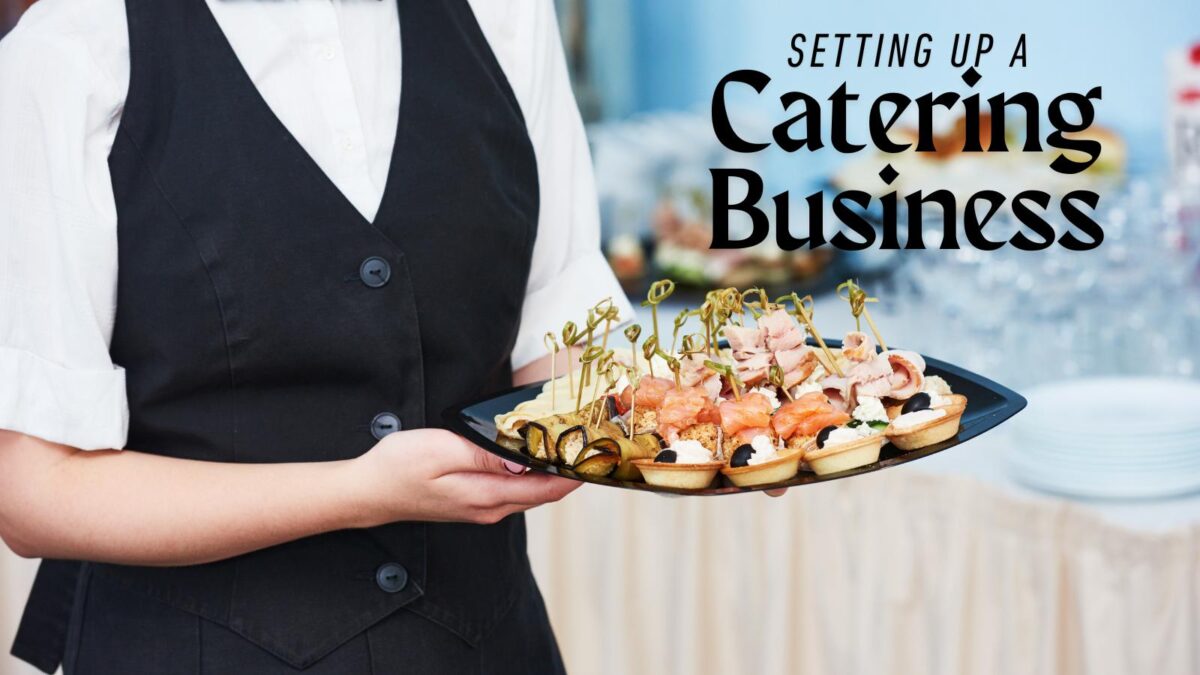Starting a catering business can be a great way to explore your cooking talents and capabilities while providing a service to others by preparing their food, ready for consumption. You can provide catering services for a wide range of private and commercial customers, and you can start a business catering for executive lunches for businesses, children’s parties, weddings, or anything you wish.
However, before you determine this is the best course of action for you, there are a few things to consider first.
Table of Contents
Licensing
Every food business needs the right license to operate, and you need to make sure you meet the food health and safety requirements of preparing and selling food to the general public. The right type of permits and processes depend on the kind of catering service you set up.
Will you be working from a mobile location, at home, or in a fixed location? Are you considering a food truck? Or are you online only, and people need to collect from you?
Remember, you must register your catering business with your local council at least 28 days before commencing trading.
Financing For Catering Business
It’s not always cheap to get a catering business up and running, and you need to be clear about how and where you will access funding, as well as how much you realistically need to get started. For some, it’s relatively inexpensive; i.e., if you’re catering from home, you need to invest in food, drinks, and storage equipment to transport and set up at your event.
For others, it is investing in a food truck, for example, a business location, equipment such as vacuum packer machines,delivery vehicles, cooking equipment, racking, storage units, etc., and these costs can add up quickly before you even factor in the ingredients to make the food you will be serving.
Suppliers
Will you be heading to your nearest Costco for your catering business supplies, or will you need to source local vendors and suppliers to help you create your foods and meals? The type of food you plan to make and serve will dictate the kind of supplier you will be looking for.
However, whoever that might be, you need a reliable supplier who can source what you need when you need it and maintain a good supply throughout the year. The last thing you want is to take an order only if you cannot source the ingredients.
Therefore, do your due diligence on the right suppliers for your business to ensure you’re setting yourself up for success.
Audience for a catering business
You need to understand not only that there will be a market for what you are selling but also who your audience is, what they will be looking for, what they are willing to pay, and what their points are.
For example, if you cater professional business lunches, these individuals won’t have time to collect goods or even set up food during the meetings, meaning you need to deliver your food to them and set it up for their ease of access and to fit into their schedules.
If you are hosting children’s parties, you need to be available when the bulk of parties take place, i.e., on weekends, or commit to giving up your life during wedding season to cater for weddings. Know what your audience needs and when, and ensure you can meet this demand efficiently.
Conclusion: Setting Up A Catering Business Right
Setting up a catering business takes careful planning, clear goals, and brilliant execution. You need a solid business plan, attention to food safety rules, and a good grasp of your target market.
Focus on quality service and build strong relationships with your clients and suppliers. Utilize technology to track orders and manage your schedule effectively.
Stay on top of expenses and be honest about your capabilities. With the proper foundation, you can build a catering business that stands out and consistently attracts customers.

